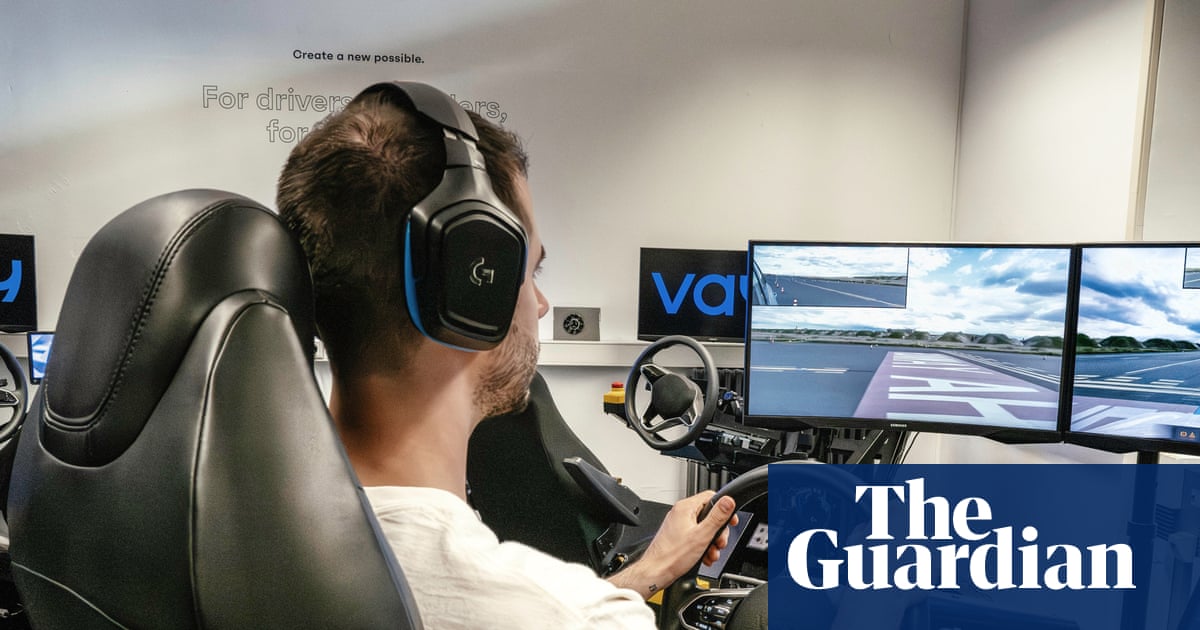
"Having been summoned by a few clicks in an app, the electric car slows to a halt outside the former cargo hall of Berlin's now defunct Tegel airport. No one is at the wheel, but upon a passenger stepping inside, a voice announces: This is Bartek, I am your driver today. Please buckle up and we can be on our way."
"In a high-back leather chair, he operates the car by pressing foot pedals and turning a steering wheel, while monitoring the drive on three large screens in front of him, captured by the car's four discreet rooftop cameras. Headphones feed him the sounds from inside and outside the car, and sensors enable him even to feel any bumps in the road."
"Sztendel works for Vay the name mimics the way many Germans pronounce way a remote-driving tech company set up in Berlin in 2018 with the aim of revolutionising mobility in Europe's cities. Silvia Avanzini, head of communications at Vay, checks the app used to start and end journeys as the car is driven remotely. App users will pay per minute for their electric vehicle at a rate that Vay says is about half of what a current ca"
An electric car is remotely operated from a station hundreds of metres away, where a human driver named Bartek controls pedals and steering while watching three large screens fed by the car's rooftop cameras. Headphones deliver interior and exterior sounds and sensors convey road bumps. The remote-driving company Vay aims to let customers summon rental electric vehicles via an app, have them delivered by a remote driver, drive themselves, then end the rental while the remote driver handles parking and return. App-based billing charges per minute at roughly half the cost of current car rentals.
Read at www.theguardian.com
Unable to calculate read time
Collection
[
|
...
]